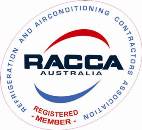
The Australian Refrigeration Council (ARC) have released their latest CoolChange newsletter.
The October issue focuses on: ARC licence numbers increasing, lubricating oil flammability, details of Fiji’s Low-GWP Technology summit, details of compliance activities in the 2015/16 financial year, natural refrigerants training, ARC’s AGM, banned systems, tips for Refrigerant Trading Authorisation (RTA) audits, automotive workshops on R1234yf, and Building Information Modelling (BIM).
CoolChange stated that the number of ARC licences issued has exceeded 83,000 due to the success of the partnership between industry, via ARC and the Government. They also stated that the ARC licence scheme “will continue to provide significant direct and indirect emissions savings over the next two decades.”
CoolChange also emphasised the important properties of the flash point and fire point of refrigerant oils and the care that must be taken by technicians to prevent the oils from igniting. Details of compliance activities for the 2015/16 financial year were also provided, which included: 251 referrals from the ARC for suspected non-compliance, 92 monitoring inspections and 97 investigations.
CoolChange also provided lists of the national natural refrigerant competency standard units, banned systems under the minimum energy performance standards (MEPS), and tips for RTA audits.
CoolChange also provided details of Fiji’s Low-GWP Technology summit which was held in June, the importance of automotive workshops on R1234yf and how the new refrigerant will affect technicians, and how BIM models can rid of frustrating guess work for technicians.
ARC have also published a call for directors for their AGM, which will be held this month.
ARC’s CoolChange October newsletter can be read in full here.
Image via Pixabay.



